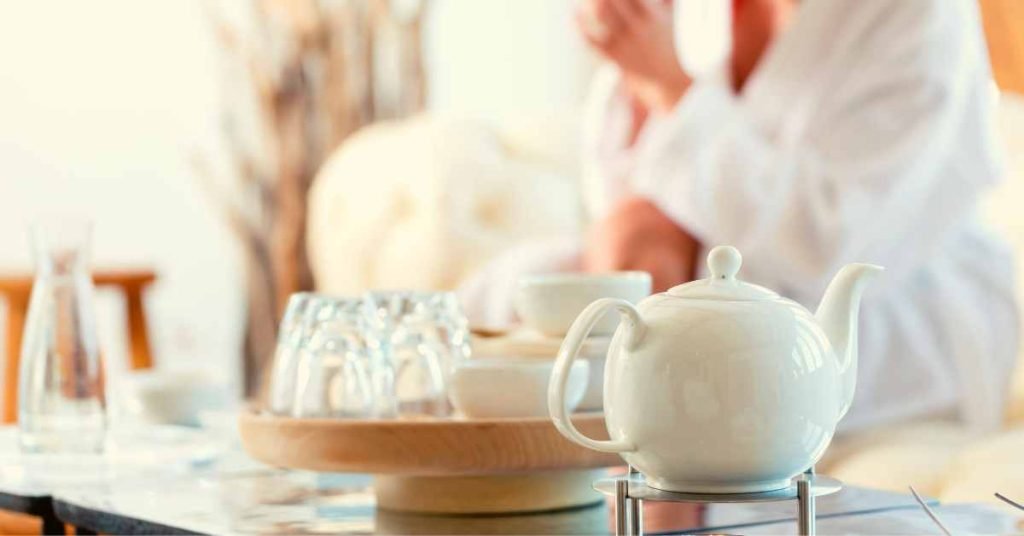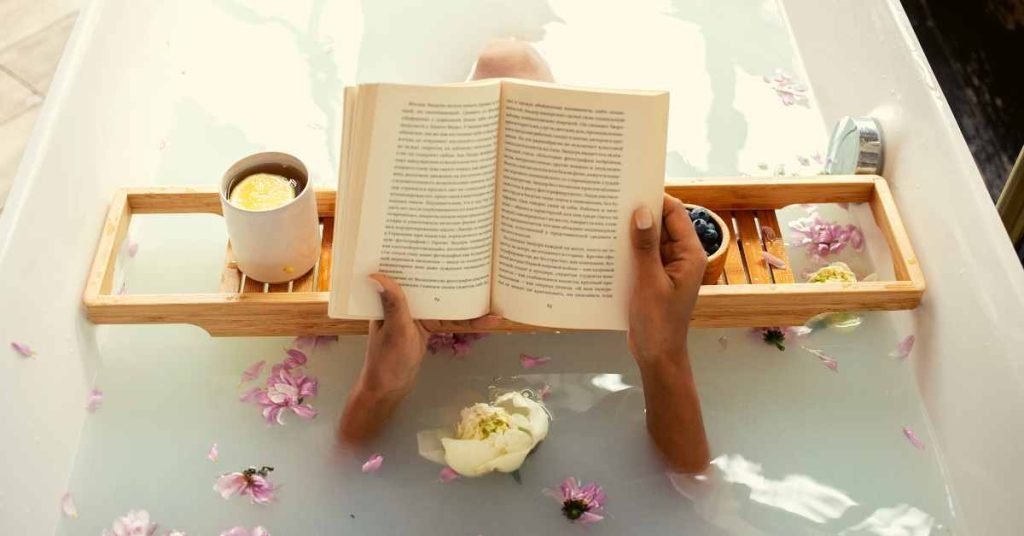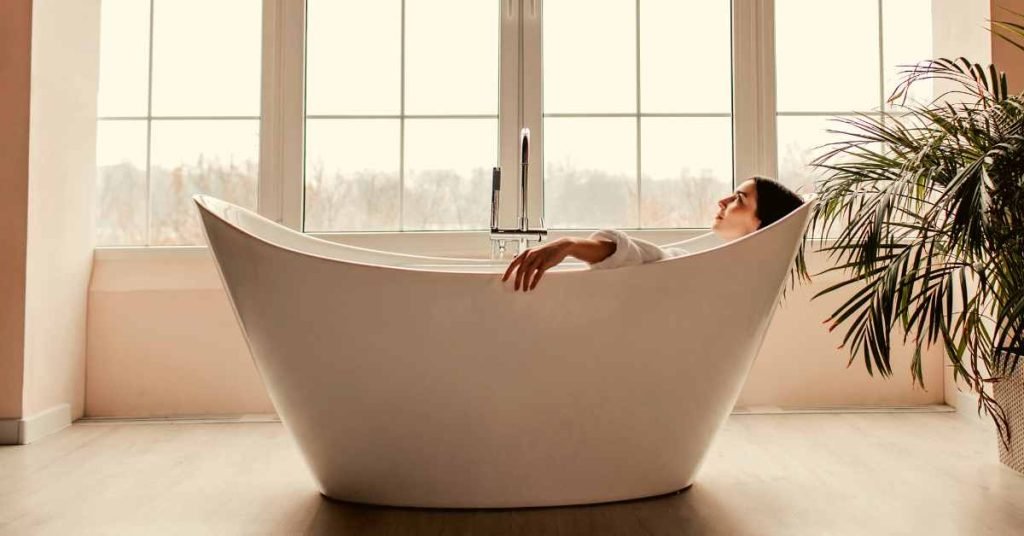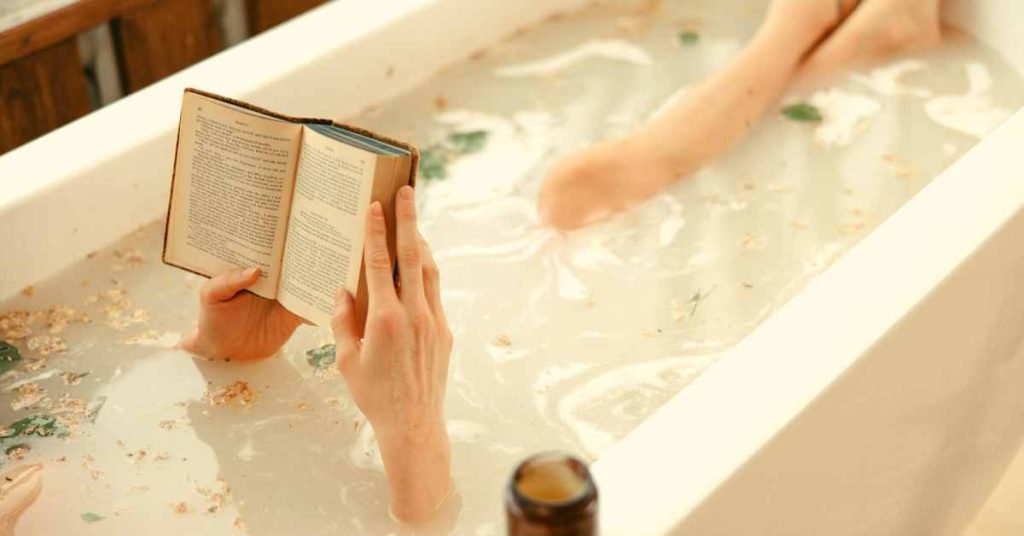The ancient ritual of bathing has long been cherished for its calming and rejuvenating effects.
As we seek to find solace and relaxation in our busy lives, the practice of bathing has evolved to incorporate various elements to enhance the experience.
One such element that has gained popularity in recent years is the use of tea in bathing.
The concept of tea-infused baths is not only a delightful way to unwind but also offers a myriad of therapeutic benefits.
In this article, we will explore the origins of tea-infused bathing, the types of teas commonly used, and the remarkable benefits it can bring to your self-care routine.
The Origins of Tea-Infused Bathing

The art of incorporating tea into bathing dates back centuries and has its roots in various cultures, including China and Japan.
In both of these countries, the tradition of tea is deeply ingrained in their history, and they have found innovative ways to extend its benefits beyond consumption.
The concept of tea-infused baths is an extension of this cultural reverence for tea.
In China, traditional Chinese medicine recognizes the therapeutic properties of various teas, and this knowledge has been applied to bath rituals for generations.
The Chinese have been known to use herbs, such as green tea, black tea, and oolong tea, in their bathwater to soothe aching muscles and promote relaxation.
Japan, on the other hand, has its own version of tea-infused bathing known as “yuzu-yu.” Yuzu, a citrus fruit, is often added to bathwater to create a fragrant and invigorating experience.
This practice not only calms the mind but also provides relief from cold symptoms, aches, and fatigue.
Types of Tea for Bathing

There are various types of tea that can be used for tea-infused baths, each offering its unique set of benefits and aromas. Here are some popular options:
- Green Tea: Green tea is renowned for its antioxidant properties and is a favorite choice for tea-infused baths. It can help detoxify the skin, leaving it refreshed and revitalized. Green tea’s subtle, earthy scent also adds to the calming atmosphere of a bath.
- Black Tea: Black tea is known for its robust aroma and is often chosen for its invigorating and awakening qualities. It can help improve circulation and provide a natural energy boost. Black tea-infused baths are perfect for mornings or after a long, tiring day.
- Chamomile Tea: Chamomile tea is celebrated for its soothing and calming properties. An infusion of chamomile in your bathwater can help relieve stress and anxiety, making it a perfect choice for winding down before bedtime.
- Lavender Tea: Lavender tea is famous for its soothing fragrance and relaxation-inducing properties. A lavender-infused bath can help ease tension, promote sleep, and leave you feeling refreshed and serene.
- Eucalyptus Tea: Eucalyptus tea has a refreshing and invigorating aroma that can clear the sinuses and relieve congestion. It’s a great choice when you have a cold or need to clear your mind.
- Mint Tea: Mint tea’s invigorating scent and cooling sensation make it an ideal choice for a revitalizing bath. It can help soothe sore muscles and improve focus and alertness.
The Benefits of Tea-Infused Bathing

- Relaxation and Stress Relief: One of the primary benefits of tea-infused bathing is the relaxation it offers. The warm bathwater infused with the soothing aroma of tea can help calm the mind and reduce stress levels. It’s an excellent way to unwind after a long, hectic day.
- Skin Nourishment: Different types of teas offer various skincare benefits. Green tea, for example, is rich in antioxidants that can help rejuvenate and detoxify the skin. The tannins in black tea can promote healthy, glowing skin. Tea-infused baths can leave your skin feeling soft and refreshed.
- Muscle Relief: The warmth of the bath combined with the therapeutic properties of certain teas, like eucalyptus and mint, can help soothe sore muscles, reduce tension, and alleviate aches and pains. It’s an excellent remedy for post-workout recovery.
- Improved Sleep: Many tea varieties, such as chamomile and lavender, have natural sedative properties that can help you achieve a more restful night’s sleep. A relaxing tea-infused bath before bedtime can prepare your body and mind for a peaceful slumber.
- Aromatherapy: Tea-infused baths offer the added benefit of aromatherapy. The soothing scents of tea can have a profound impact on your mood and emotional well-being. The calming aroma of chamomile or the invigorating scent of mint can help uplift your spirits and alleviate anxiety.
- Enhanced Circulation: Teas like black tea can improve blood circulation, helping to invigorate the body and provide a natural energy boost. A tea-infused bath in the morning can be a revitalizing start to your day.
How to Prepare a Tea-Infused Bath
Here’s a step-by-step guide to help you get started:
Ingredients:

- Your choice of tea (loose-leaf or tea bags)
- A bathtub
- Hot water
- A strainer or muslin bag
- Optional: additional aromatic elements like dried herbs or flowers, Epsom salt, or essential oils
Instructions:
- Start by filling your bathtub with hot water. The water temperature should be comfortable for you, but not scalding. Ensure that there’s enough water to submerge your body comfortably.
- While the tub is filling, prepare the tea. You can use loose-leaf tea or tea bags, depending on your preference. Use a generous amount of tea to create a fragrant infusion. Typically, 4-8 tea bags or 1-2 cups of loose-leaf tea should suffice.
- If you’re using loose-leaf tea, place it in a strainer or muslin bag to prevent the leaves from floating freely in the bathwater. This will make cleanup easier.
- Optional: You can enhance the experience by adding dried herbs, flowers, Epsom salt, or a few drops of essential oils to the tea mixture. These additions can complement the tea’s therapeutic effects and add a delightful fragrance to your bath.
- Once the bath is filled with water, lower the tea-infused strainer or muslin bag into the bathwater. Let it steep for a few minutes to release the tea’s aroma and benefits.
- Submerge yourself in the tea-infused bath and relax. Take deep breaths to inhale the soothing aroma and allow the warmth to envelop you.
- Soak for 20-30 minutes or as desired. You can read a book, listen to calming music, or simply close your eyes and enjoy the serene moment.
- When you’re finished, carefully remove the tea-infused strainer or muslin bag, and gently rinse your body with fresh water to remove any tea residue.
- Pat your skin dry and moisturize with your favorite lotion or oil to lock in the hydration.
Final Word

Tea-infused bathing is a wonderful practice that combines the age-old tradition of bathing with the therapeutic benefits of tea.
It offers a sensory experience that relaxes the mind, nourishes the skin, and promotes overall well-being.
Whether you’re seeking relaxation, muscle relief, improved sleep, or a revitalizing start to your day, tea-infused baths have something to offer everyone.
So the next time you wish to pamper yourself and escape the daily hustle and bustle, consider the simple yet luxurious delight of a tea-infused bath. Your body and mind will thank you for it.
MEDICAL DISCLAIMER
Itsnevernotteatime.com cannot and does not contain medical/health advice. The medical/health information is provided for general and educational purposes only and is not a substitute for professional advice.




